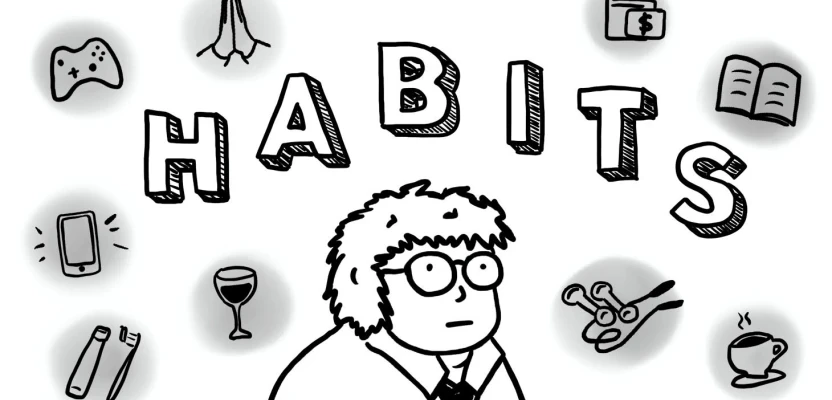
You think Tor, VPNs, and disposable accounts make you invisible? Think again. Your habits are like fingerprints on the glass of anonymity. Tech can’t wipe them off. Crypto won’t hide them. They quietly accumulate with every action - from the time you usually check your email to the way you use punctuation. And one day, all those little things come together like a puzzle revealing your true identity.
Digital Fingerprints: When Writing Style Becomes Evidence
In 2021, Dutch police arrested a darknet forum admin who had evaded tracking for years. It wasn’t an IP leak or a PGP mistake that gave him away - investigators noticed he always used two spaces after periods in his messages. That same habit appeared in his legit Reddit account where he talked about crypto. It wasn’t a fluke. Text style analysis is now a standard tool in digital forensics.
Your unique markers:
- Typing speed. Whether you pause after certain words or rush through your sentences, it creates a rhythm that can be compared to patterns from known accounts.
- Slang usage. Words like “abuse,” “fix,” or “update” showing up in both business emails and shady forums.
- Consistent typos. Always misspelling “interesting” as “intresting,” for example.
- Punctuation habits. Extra commas, missing periods, or a habit of adding smiley faces like this :)
Try this: open your old VK account and compare your message style from 10 years ago to your current Telegram chats. You'll be surprised how consistent it is.
Your Schedule: A Beacon for Tracking
Humans are slaves to routine. We drink coffee at the same time, check social media on the subway, log into work chats at exactly 9:00 AM. These patterns kill anonymity.
How they break you using your schedule:
- Tor connection times. Always activating your VPN at 7:30 PM before dinner? That’s a fingerprint.
- Transactions. Topping up your crypto wallet on the 5th of each month (payday) - red flag.
- Social media activity. Posting on Instagram at 2:00 PM + logging into a darknet account at 2:05 PM = clear correlation.
Pro tip: Set a timer to mimic random activity - empty search queries, logins to legit services, ad clicks. Generate "noise" to drown out your real schedule.
Tech Habits: How Your Devices Betray You
Your phone, laptop, and even router leak data you don’t notice:
- Screen resolution. Opening Telegram on an iPhone 13 Pro Max (1284x2778) and Tor on a 1920x1080 laptop? That’s a digital signature.
- Fonts. Using a custom font in your browser (like Comic Sans) is rare and narrows down the suspects fast.
- Device usage patterns. Phone - laptop - smart speaker when connecting to Wi-Fi.
- Battery habits. Always charging your devices to 100% before going online? That shows up in metadata.
Real-world example: In 2022, part of the REvil hacking group was unmasked due to reusing the same USB drives across devices. Investigators rebuilt the connection logs and found a pattern.
Social Media: The Mirror of Your "Anonymous" Self
Sure, your darknet account isn’t tied to your real life? Check again:
- Photos. Shadows in your Instagram pics can reveal window locations - just like that “order received” photo on a shady forum.
- Music. Mentioning a rare track, you streamed on Spotify in a forum chat = link established.
- Dates. Wishing your friend a happy birthday on social media + buying them a gift on the darknet on the same day.
Psychology: How You Expose Yourself
Our cognitive biases betray us:
- Familiarity effect. You've used “SuperCat” for 10 years, slightly changing it (SuperCat2024, Super_Cat).
- Fear of change. Registering with burner emails that follow a pattern (fox123@proton.me, fox456@proton.me).
- Laziness. Reusing the same password for everything with minor tweaks (P@ssw0rd, P@ssw0rd!).
Psych experiment: Participants were asked to create “anonymous” accounts. 73% repeated the same habits from their real lives - form filling order, color choices, password structure.
How to Become Invisible: A Paranoid's Guide
- Create digital alter-egos.
- Persona A: Active in the morning, writes in short sentences, loves emojis.
- Persona B: Night user, academic tone, hates emojis.
- Switch between them at random using tools like Keyboard Maestro.
- Automate your routine.
- Use Tasker or Automate to:
- Randomly launch VPN and Tor in the background.
- Mimic activity (watching YouTube, random searches).
- Use VirtualBox with different OS setups for each session.
- Destroy hardware patterns.
- Change your screen resolution every 10 minutes using Display Changer.
- Plug in random USB devices (even empty ones) to alter hardware IDs.
- Use anti-detect browsers like Dolphin to spoof digital fingerprints.
- Change your mindset.
- Before every action, ask: “How would someone else do this?”
- Play the “Random Act of the Day” game - do something illogical to break your patterns.
Tech, That's Already Watching You
- AWS Neptune. Analyzes connection graphs between accounts through behavior patterns.
- Cellebrite UFED. Recovers device usage patterns even after data deletion.
- IBM Watson Behavioral Analytics. Builds psychological profiles from digital traces.
"If you want to test your anonymity, hire ethical hackers. They'll find things you never imagined."




Comments 0